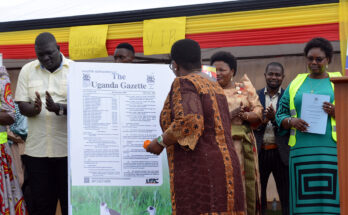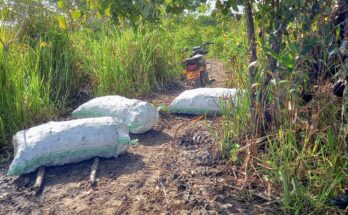Photo by Molly Blackbird on Unsplash
Maria and Nana [not real names] have been friends since childhood. They literally did everything together from fetching water and firewood to playing war games and learning cooking – they were best of friends. But Maria’s world changed forever when Nana, her older friend and a young man plotted to break her virginity.
“It was in the evening when we had just finished cooking and we met to just tell stories. Nana tricked me by saying a male friend of hers needed something and sent me to take something to his house,” Maria recalls. That move marked the beginning of misery in her life. Little did she know that the two had planned to defile her. When she reached the boy’s hut, he preyed on her. Maria decided to keep quiet about the incident, fearing that her mother Lucy would scold her.
It wasn’t until she started feeling sick a few weeks later that she confided in her friend Nana. She had missed her monthly period and felt something wasn’t. Nana bought for her a test strip and the test, which later turned out positive, was done at home. When Maria told the young man about the situation, he disappeared from the village.

“I felt the whole world dawning on me,” says Maria. She was left with no option but to confide in her mother. Maria says that at first, her mother was so heartbroken by the news, but she later accepted the reality and stood by to support her daughter. Lucy’s misery was compounded when she later learnt during an antenatal visit that her daughter was HIV positive. Lucy has been living with HIV for some time and the thought of her daughter going down the same path shook her to the core.
Maria would carry the pregnancy to terms. By that time, Lucy, her mother was 8 months pregnant too. She nonetheless accompanied her daughter to Lacor Hospital from where she was delivered normally. Because Maria had to return to school to study for her final exams for the Uganda Certificate of Education (UCE), she left her one-month-old baby girl in the hands of her mother.
Initially, Lucy tried to do odd jobs to get money to buy baby milk which was very costly. Her time to give birth also came and she went into labour pains. Her current husband brought her to Lacor Hospital but she labored for so long that doctors decided to operate on her. She had come to the hospital with her daughter’s baby who was just a month old.
“Having two babies at this time was one of the toughest moments of my life,” says Lucy. “I could no longer even do any odd jobs to raise money for milk for my daughter’s baby, and my husband could not afford it as he’s also a peasant.”
As a result, the HIV-positive mother resorted to breastfeeding both babies. Lucy sadly says that even if she knew her status, she couldn’t bear seeing the babies cry helplessly because of hunger, thus she resorted to breastfeeding them.
“I had no one to help me take care of the babies except my husband. Carrying both babies and breastfeeding them was a real challenge,” Lucy remembers. She adds that because of stress, her breast milk dwindled and was forced to go back to the hospital for advice.

At Lacor Hospital, the doctors informed Lucy that she was malnourished, as well as the babies. They advised her on her diet as well as the diet of the children. She returned home and tried to look for money to buy baby milk again. Lucy got some little money but the situation wasn’t easy. The baby formula cost her about 50,000 UGX per tin but the babies consume it in just 4 days. This made her resort to buying whole milk which was a lot cheaper, but also very hard to get in her village. Time passed and Maria was finally back home. She has just turned 18 and accompanies her mother to Lacor Hospital for review.
“I thank God my daughter has finished her exams and is back home. I feel some relief in terms of caring for the children,” says Lucy
Maria revealed that she felt bad that she had put her mother under such a harsh condition. She promises not to give up fighting for her dream of becoming a Clinical Officer, even if she doesn’t know where the money to pay her tuition will come from.
“Am only thankful that my mother has been very supportive throughout. My teachers have equally been understanding and have helped me study during this very traumatic period,” says Maria. “Right now, I have no breast milk. My mother and I are struggling to get milk, but I hope we can break through.”
According to the United Nations Population Fund (UNFPA) Uganda, a total of 290,219 teenage pregnancies were recorded from January to September 2021, translating to 32,000 monthly. According to the Uganda Population HIV Impact Assessment (UPHIA) survey, the current prevalence of HIV among adults aged 15-49 years in Uganda is 5.5% (7.1% among women and 3.8% among men).
However, the survey did not provide specific data on the HIV prevalence among teenage mothers. So, using the national average of HIV prevalence among women aged 15-49 years (7.1%), we can roughly estimate that about 27,264 teenage mothers are living with HIV in Uganda annually. But this is likely an overestimate since the HIV prevalence varies considerably across the 11 geographic regions in the country from a low 2.1% in the North East (Karamoja) region to a high of 8.1% in the Central 1 region (Greater Masaka).
According to the police crime of 2021, defilement cases rose from 14,134 in 2020 to 14,436 cases reported in 2021. This means that at least 40 cases were reported daily across the country. However, just like Maria’s, there are many cases that go unreported to the police. These numbers show that defilement is a serious and prevalent crime in Uganda, affecting many children, especially girls.

Lacor Hospital receives more than 300 teenage mothers aged 15 – 19 years old annually. Many of the teenagers who come to the Family Planning Clinic at Lacor Hospital come with their mothers or grandmothers to seek family planning services.
Right from the onset, Lacor Hospital has been at the forefront of fighting the AIDS disease and preventing HIV infection. According to Dr. Emmanuel Ochola who is the Hospital Epidemiologist and Deputy Institutional Director, the hospital has been managing through testing and prevention; care and treatment as well as virologic suppression.
“We can discuss this under the 95-95-95 principle: 95% of the positives should be found/diagnosed. 95% of those diagnosed should be started on ARVs, and 95% of those on ARVs should be kept suppressed,” says Dr Ochola. Doctors believe that if not supported, Maria and Lucy’s children will be exposed to severe malnutrition and risk contracting HIV from the caretakers.
Other preventive measures include PEP (Post-exposure prophylaxis), PREP (Pre-exposure prophylaxis), and PMTCT/EMTCT (Elimination of mother-to-child transmission). Lacor Hospital also does checks for TB and advanced HIV disease, prophylaxis for TB and meningitis in particular groups, pediatric and adolescent care clinics, as well as follow-up of patients who missed appointments.
“We have over 21 community drug distribution points (CDDPs),” says Dr. Ochola. “There, we take drugs every 3-6 months for free, as far as Myene near Kamdini, Palaro, Paicho, etc. 34 of the many Community Client Led ART Distribution (CCLAD) groups of 4-6 clients can send one to pick their drugs either from the hospital or from the CDDP, and ADDPs (Alternative Drug Distribution Points). We have placed some ARVs in some drug shops in town and registered clients can access them. We now implement what is called MMD (Multi-month Dispensing) where clients can get refills for up to 6 months.”




